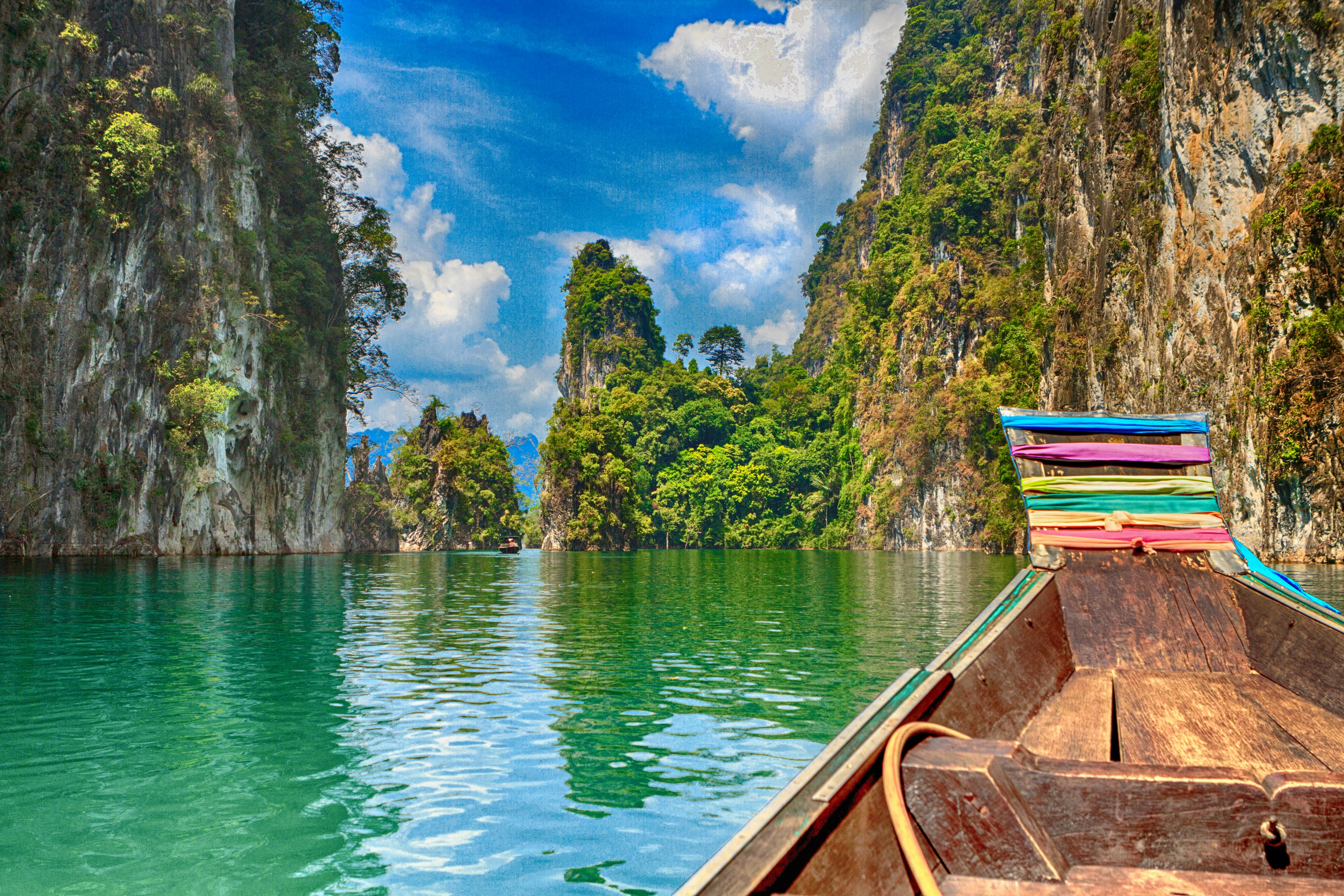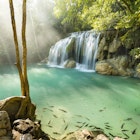
'You forgot something' - Thailand mails trash back to tourists as it aims to protect natural wonders

Oct 3, 2020 • 3 min read
- placement: fullWidth
- path: articles/in-content-top
- possible size: [970, 250], [970, 90], [728, 90], [300, 250], [320, 50], [1, 1],
- targeting:
{ "url": "thailand-environmental-protection", "destination": "Thailand", "continent": "Asia", "country": "Thailand" }
It’s not the type of souvenir most of us have in mind. In September, tourists who had stayed at Thailand’s Khao Yai National Park received a package in the mail: rubbish that they’d left behind while staying at the park.
“You forgot something in Khao Yai National Park,” an attached note read, “Allow us to return it to you.” To be clear, returning trash to litterbugs is not an official Thai National Park policy (the standard punishment is fines or jail time). And in typically confrontation-averse Thailand, it’s a bold statement. But the action is indicative of a movement that is reassessing the interaction between humans and protected areas in the tourism vacuum left by the pandemic.

- placement: fullWidth
- path: articles/in-content-middle
- possible size: [970, 250], [970, 90], [728, 90], [300, 250], [320, 50], [1, 1],
- targeting:
{ "url": "thailand-environmental-protection", "destination": "Thailand", "continent": "Asia", "country": "Thailand" }
Thailand is one of the most visited countries in the world, and is also home to a large domestic tourism industry. The Department of National Parks, Wildlife and Plant Conservation estimates that last year more than 20 million people visited Thailand’s national parks. Khao Yai National Park alone hosts more than one million visitors annually, and in previous years visitors have left behind nearly 50,000kg of garbage during the New Year peak season.
The impact of these numbers reached a flashpoint in 2018, when it was estimated that as many as 6000 people a day were visiting Hat Noppharat Tara – Mu Ko Phi Phi National Park, a protected area in the country’s south. Most were bound for tiny Maya Bay, the tropical paradise featured in the 2000 film The Beach. Visitors left behind rubbish, damaged plants and sand, and boat anchors are thought to have destroyed as much as 50% of Maya Bay’s coral. Images on social media showing thousands of tourists thronging what was ostensibly a protected natural area led to outrage among Thai citizens, and the park was closed indefinitely.
- placement: native
- path: articles/in-content-native
- possible size: [f, l],
- targeting:
{ "url": "thailand-environmental-protection", "destination": "Thailand", "continent": "Asia", "country": "Thailand" }
Two years later, Maya Bay remains closed, and officials claim that the environment has recovered significantly. An opening date for the park hasn’t been yet announced, but officials have created an entirely new set of rules and infrastructure for the park that will limit visitors and their impact on the park’s environment.
The success of the closure at Hat Noppharat Tara – Mu Ko Phi Phi National Park coupled with the two-month closure of Thailand’s national parks during the country’s strict pandemic quarantine seem to have made officials realize that Thailand’s natural areas could benefit from a regular break from humans. Environment and Natural Resources minister Varawut Silpa-archa, allegedly the mastermind behind the rubbish package, has recently proposed that protected areas in Thailand should be closed for between two and four months per year to allow nature to recover from human impact.
As Thailand emerges from the worst of the pandemic, its national parts are yet again open. But with a ban on international tourism still in place and fewer domestic tourists due to pandemic restrictions, park officials have seemingly been given breathing room to enforce already existing rules – sometimes creatively. In addition to returning rubbish to its rightful owners, this has meant filing official complaints against litterbugs and others who have violated national park rules, banning alcohol consumption in all parks and closing parks that are at risk of damage.
You might also like:
Thailand is introducing a new long-term tourist visa - but there are conditions
Endangered tigers have returned to western Thailand
How worldwide lockdowns have impacted conservation efforts
- placement: fullWidth
- path: articles/bottom
- possible size: [970, 250], [970, 90], [728, 90], [300, 250], [320, 50], [1, 1],
- targeting:
{ "url": "thailand-environmental-protection", "destination": "Thailand", "continent": "Asia", "country": "Thailand" }
Explore related stories



 Sustainable Travel16 stunning eco-hotels for the environmentally conscious traveler
Sustainable Travel16 stunning eco-hotels for the environmentally conscious travelerFeb 21, 2022 • 13 min read


 Sustainable TravelThailand might close its national parks regularly to protect wildlife
Sustainable TravelThailand might close its national parks regularly to protect wildlifeJun 9, 2020 • 1 min read



